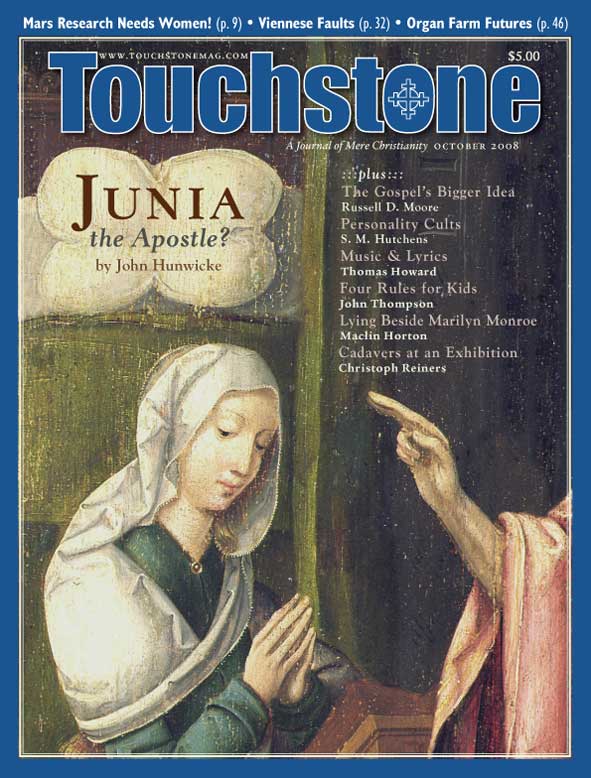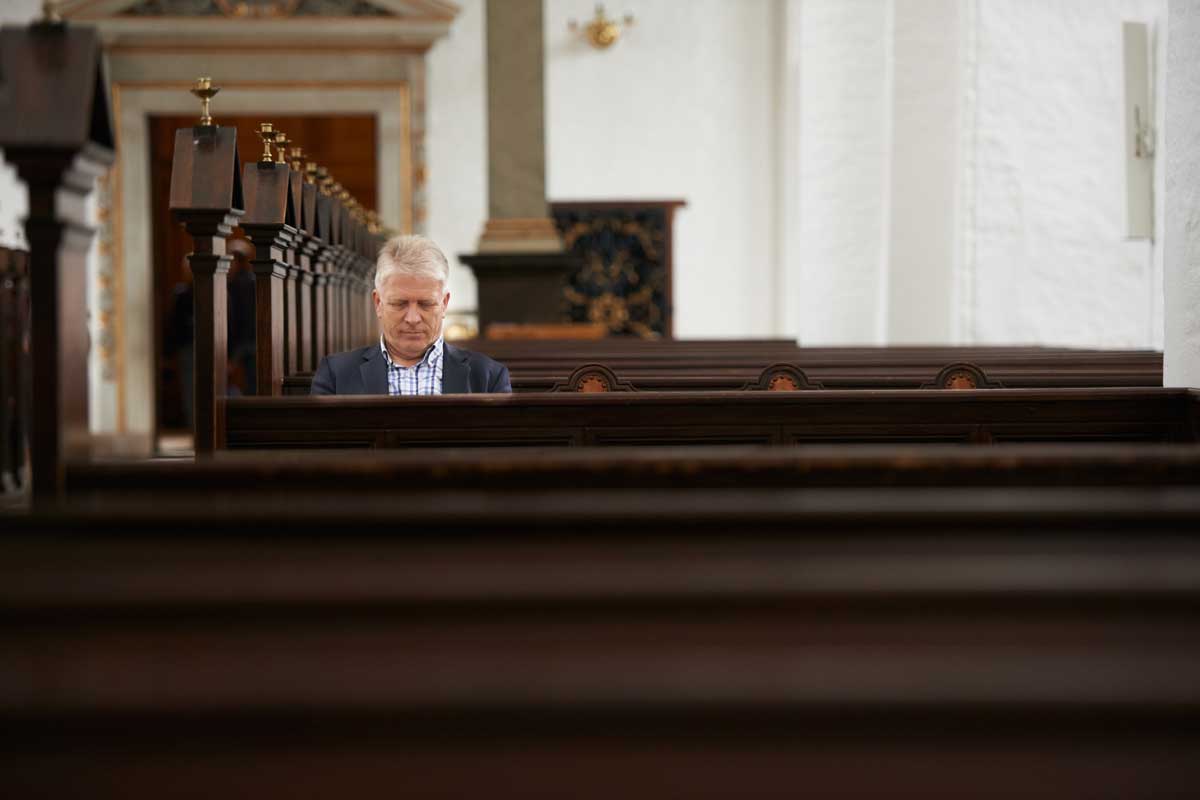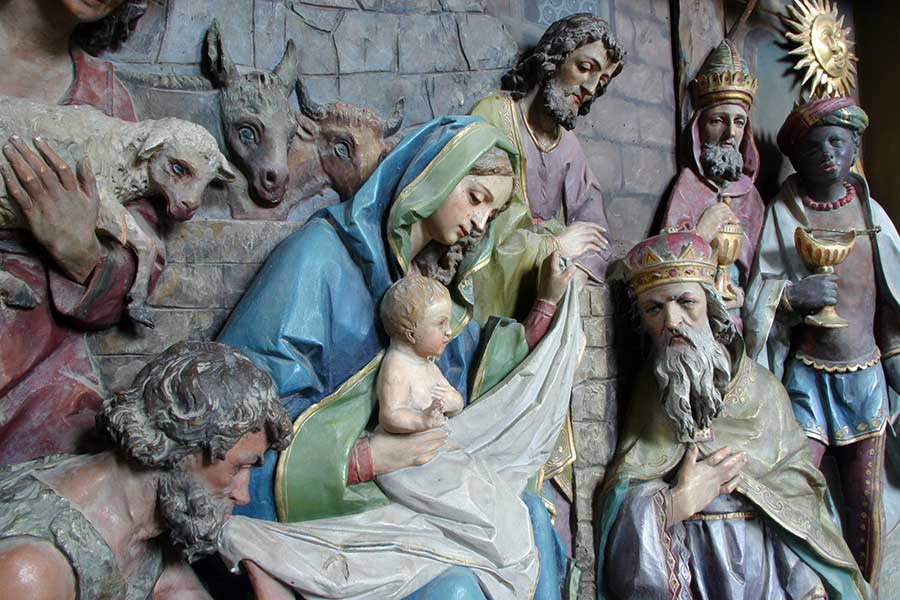Editorial
Scandalous Messengers
Unbelievers Have Always Been Watching Us, Closely
Real pagans, if they are also good and sane pagans, are obliged to agree on certain rules among themselves, an established set of common expectations, in order to make social life possible. They must set up minimum social standards of behavior, with a view to discouraging murder, adultery, fraud, and other conduct harmful to one another or the common good. In pursuit of this purpose, such pagans promulgate laws, establish forums of adjudication, and provide for sanctions against offenders. They exert this effort simply in order to survive. This cooperative effort is what philosophers call the Social Contract, which strives to preserve at least a manageable level of public decency and order, sufficient to make civic life possible, perhaps even enjoyable.
The goals of a decent, stable society are modest. Its standards are not necessarily demanding. It has in mind to form citizens, not saints. It does not command holiness. It does not require fast days and the maintenance of vigils. It imposes on no one the obligation to strive for sanctity, and, except during wartime and national disasters, it does not normally exact strenuous asceticism or heroic virtue of its citizens.
On the other hand, a society of this sort should hardly feel threatened when some of its own members, not entirely satisfied with the modest goals of civic life, desire to strive for something higher. Ordinarily a good, sane pagan society should have no objection to a few saints and ascetics in its midst, as long as these saints and ascetics are also solid citizens.
Early Christian apologists made this point over and over, tirelessly explaining to the pagans of their own day that the higher calling of the Christian faith posed no threat to the stability and wellbeing of ordinary society. Justin, Tertullian, and their friends assured their fellow citizens that Christians, precisely because they held themselves to a more demanding spiritual criterion, could always be counted on to maintain the minimum expectations of the social order. They affirmed this with great confidence.
To the chagrin of reasonable pagans, however, it sometimes happens that those professing adherence to the higher norms of religious faith nonetheless fall below—even far below—the elementary, minimum level of goodness expected in a decent society.
For example, the Books of Maccabees, which describe at length the severe pagan persecution of the Jews during the second century before Christ, tell also of the scandals caused in the pagan world by very bad but highly placed Jews. Among the worst of such scandals was the one created by a character named Menelaus, who simply outbid the previous high priest, Jason, who also had obtained that office by bribery. Indeed, by his cunning use of riches stolen from the temple treasury, Menelaus became for a while a major player in the geopolitics of the Middle East.
The treachery of Menelaus was shocking even to the pagans of the time. When he arranged for the murder of Onias, an earlier high priest, the bloody deed touched the moral sensitivity of the whole region, even of that cruel persecutor of the Jews, Antiochus IV Epiphanes (2 Macc. 4:35–38). Later, when a delegation of Jews complained of Menelaus to the king, this same high priest arranged to have them murdered as well, an act that horrified even the Phoenicians, a people not especially sensitive on moral questions (4:44–49).
Alas, this seems rather often to be the case. How are pagans to take seriously those who profess to be better than the world, when in fact they live by norms conspicuously lower than the world? How is it possible for a Christian church to hold its bishops, for instance, to lower ethical expectations in matters of business than the chairman of a secular corporation? Why are such scandals permitted, year after year? Or again, why should a priest not be unfrocked for offenses that would promptly send a school counselor to prison? How can we expect pagans to take any Christian church seriously if it does not call its own stewards to account?
Alas, it is a demonstrable fact that the people of God, when they fall, often enough do not fall to the level of good paganism, but much lower. They sink down so far that even the law-abiding pagan is bewildered. And this bewilderment constitutes scandal in that word’s strict sense, because it testifies that the people of God are truly bad people. It convinces the unbeliever that Christians are hypocrites, who do not truly believe what they declare.
Clearly this reflection bears on the relationship between church discipline and the ministry of evangelism. If the gospel is to be taken seriously by the contemporary pagan culture that surrounds us, it is imperative that the churches speak with the voice of authority to the moral lives of their members—especially holding its own leadership to account—because nothing eviscerates evangelism more effectively than scandal.
— Patrick Henry Reardon, for the editors
Patrick Henry Reardon is pastor emeritus of All Saints Antiochian Orthodox Church in Chicago, Illinois, and the author of numerous books, including, most recently, Out of Step with God: Orthodox Christian Reflections on the Book of Numbers (Ancient Faith Publishing, 2019).
subscription options
Order
Print/Online Subscription

Get six issues (one year) of Touchstone PLUS full online access including pdf downloads for only $39.95. That's only $3.34 per month!
Order
Online Only
Subscription

Get a one-year full-access subscription to the Touchstone online archives for only $19.95. That's only $1.66 per month!
bulk subscriptions
Order Touchstone subscriptions in bulk and save $10 per sub! Each subscription includes 6 issues of Touchstone plus full online access to touchstonemag.com—including archives, videos, and pdf downloads of recent issues for only $29.95 each! Great for churches or study groups.
Transactions will be processed on a secure server.
more from the online archives
calling all readers
Please Donate
"There are magazines worth reading but few worth saving . . . Touchstone is just such a magazine."
—Alice von Hildebrand
"Here we do not concede one square millimeter of territory to falsehood, folly, contemporary sentimentality, or fashion. We speak the truth, and let God be our judge. . . . Touchstone is the one committedly Christian conservative journal."
—Anthony Esolen, Touchstone senior editor










